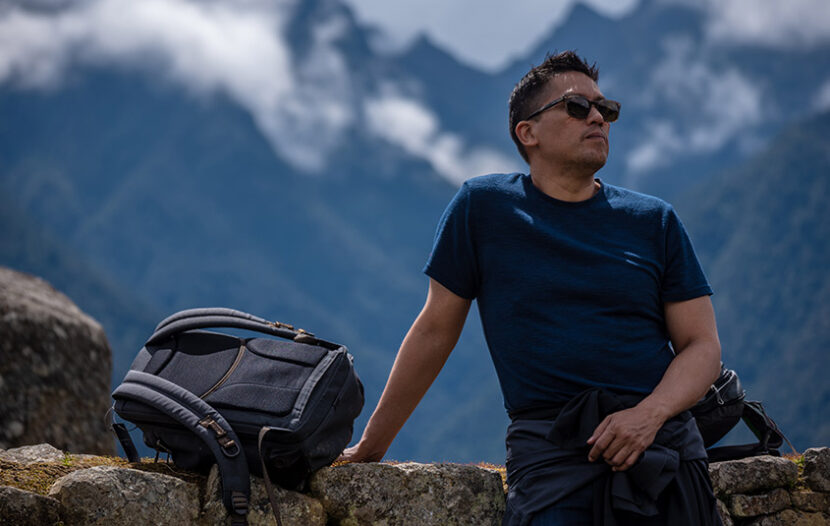TORONTO — The decision to cancel trips right before Christmas was a heartbreaking one for Bruce Poon Tip. But the founder of G Adventures had no other choice after several countries once again shut down their borders and announced enhanced travel restrictions due to the omicron variant, a response that he says was a complete overreaction.
Of course, concern over any new COVID-19 variant is warranted. But as early research about omicron has shown, there is no need for panic just yet, Poon Tip tells Travelweek in an exclusive interview.
“All early evidence shows that omicron does not lead to more severe illness, which is actually a good thing. If variants start having less severe symptoms and omicron becomes a dominant strain like Delta, that’s good news because it will lead to less hospitalization and less death,” he says. “That’s how we shift from a pandemic to an endemic. If we can get to a place where COVID-19 becomes the equivalent to the flu, virus mutations can be for the better.”
When asked what governments could have done differently upon learning about omicron, other than restrict air access from South Africa (where it was first discovered) and neighbouring countries, shut down borders and, in the case of Canada, implement mandatory COVID-19 testing for all air travellers (except from the U.S.) and self-isolation until test results become known, Poon Tip says a wait-and-see approach would have been best.
“In general, I think it’s a mistake to react so quickly. In two weeks’ time when news comes out that omicron is less transmissible or it has less symptoms, are governments going to reverse their decision to shut down? I just don’t think they will,” he says.
“I’m not coming down on government, not at all. It’s about being prepared. The lack of forward thinking and planning is unfortunate. We’ve had 19, 20 months to prepare for this, we essentially had a two-year rehearsal. But we didn’t learn anything with Delta because we’re doing the same thing.”
Shutting borders is not the answer, he adds, emphasizing the enormous socio-economic impact travel has on global communities. Prior to the pandemic, Travel & Tourism accounted for 1 in 4 of all new jobs in the world and 10.4% of global GDP. According to the World Travel & Tourism Council (WTTC), the sector suffered a staggering loss of nearly $4.5 trillion in 2020 as a direct result of the pandemic.
“Once someone’s vaccinated and tested, which is what’s been happening, that should open up some doors and create some freedoms for them to travel,” says Poon Tip. “This should be a global policy but right now, everyone’s working individually.”
As the WTTC and other organizations like the World Tourism Organization (UNWTO) and the International Air Transport Association (IATA) have repeatedly advocated throughout the pandemic, a more unified global approach is key for the safe resumption of travel. Poon Tip, however, notes how the global response to omicron has been “very uneven” thus far, with several countries, including Canada and the United States, banning flights from South Africa and other African nations, while others like Japan and Israel have gone so far as to close borders entirely to all foreigners.
“It’s been proven once again, as much as you shut down borders, you’re not going to keep it out. We’re already seeing it in every country around the world, including here in Ontario,” says Poon Tip. “We have a miracle vaccine. We should focus on vaccine equity because that’s the best way to slow down variants. Hoarding vaccines is not helping anybody.”
According to Our World in Data, only 7.5% of the 1.3 billion people living on the African continent is considered fully vaccinated against COVID-19. In comparison, 29.1 million Canadians are fully vaccinated, which is approximately 76% of Canada’s population.
“It certainly doesn’t help that one country’s 90% vaccinated while others are only at 5%,” adds Poon Tip. “We need each other to get out of this. It’s just a shame that after the 20 months we’ve been in this, we still aren’t working together.”
To read the full article, including whether G Adventures will implement new safety measures and what Poon Tip’s advice is to travel agents, click here for the Dec. 9 issue of Travelweek.

